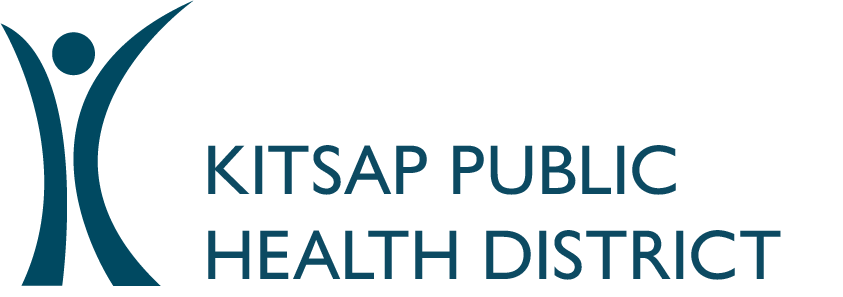With wildfires increasing in the Northwest, prepare for smoke
- katiebaker9
- Jul 24, 2024
- 4 min read
Updated: Oct 21, 2024
July 24, 2024
Hotter and drier weather in the Pacific Northwest this summer could set the stage for a long and intense summer wildfire season, according to the Washington State Department of Health. More wildfires create the potential for more smoke to drift into our region, increasing health risks for people of all ages. As of July 24, there are six large fires burning statewide.
Now is the time to prepare your home and workplace for smoky days ahead. Keep in mind that some supplies, such as fans, filters, and air conditioners, could be more difficult to find as summer progresses. Scroll down for more tips and resources or visit our Air Quality and Smoke Page.
SMOKE FROM FIRES IS UNHEALTHY FOR EVERYONE
Smoke contains tiny particles and gases that can enter your lungs and bloodstream and cause a range of health problems.
Some groups of people are at higher risk for serious health problems from smoke, including:
WHAT HEALTH PROBLEMS CAN SMOKE CAUSE?
Exposure to smoke from wildfires can cause health problems or worsen existing conditions. These impacts can range from minor to severe. Symptoms include:
Eye, nose, and throat irritation
Fatigue
Headaches and coughing
Wheezing and shortness of breath
Stress and mental health concerns
Seek medical attention if you are experiencing severe symptoms such as chest pain or difficulty breathing.
TAKE STEPS TO PREPARE FOR WILDFIRE SEASON
Consider purchasing an air purifier for your home or work, or make a box fan filter (see the link to instructions below).
Talk to your healthcare provider if someone in your household is at higher risk from smoke. If you have a breathing condition such as asthma, make sure you have an inhaler and any medications you might need.
Plan indoor activities for smoky days.
Find more tips for preparedness tips from the CDC and state Department of Health.
MAKING A BOX FAN FILTER
You can make a filter to clean air in your home by attaching a furnace filter to the back of a box fan using tape or a bungee cord. Be sure to only run the fan when you are home and to change out the filter when it gets dirty. Learn more:
Image via Washington State Department of Ecology
STEPS TO TAKE IF SMOKE ARRIVES
Health risks from wildfire smoke vary depending on how much smoke is in the air and your personal risk factors.
In general, you can protect your health by:
Staying indoors as much as possible.
Avoiding vigorous outdoor activities, such as running or biking.
Creating a Clean Room in your home – such as a living room or bedroom – where you can keep air cooler and cleaner when air quality outside is unhealthy
Keeping air in your home as clean as possible.
Close windows and doors unless it is too hot to maintain safe temperatures.
Seal gaps around doors and windows that could allow smoke to enter your home.
If you have a heating/ air conditioning (HVAC) system, install a MERV 13 or higher filter. If you do not have HVAC, use a portable air cleaner with a HEPA filter.
Use fans or an air conditioner to cool your home. Set AC to recirculate.
Avoid activities that can make indoor air quality worse, such as smoking, vacuuming, burning candles, or frying foods.
If you do not have a safe place to stay inside, go to a public indoor space.
Check in with family and friends during smoky days. Consider gathering at the home of someone with air conditioning.
Contact your healthcare provider if you are concerned about symptoms related to smoke.
Seek medical care immediately if you experience severe symptoms.
You can also call the Washington Poison Center at 1-800-222-1222 with any questions or concerns about wildfire smoke and your health.
Cleaner air and/or cooling stations may be open in Kitsap County when unhealthy air quality or extreme heat is expected. To sign up for notifications, go to kitsapdem.com or call 2-1-1.
HOW TO CHECK AIR QUALITY AND FORECASTS
It is important to stay informed of current air quality and air quality forecasts so you can take steps to protect your health. Several agencies report air quality conditions and forecasts for our area. Here are some useful resources:
Puget Sound Clean Air Agency website (pictured above) provides simple recommendations based on current air quality and risk level.
Washington Smoke Blog features and air quality map, updates on wildfire activity, and links to resources.
Airnow.gov is a national resource offering air quality monitoring and forecasts.
Want updates on your phone or tablet? Check out the AirQuality WA app for Android and iOS Determine what activities are recommended during smoky days.
WHAT TO KNOW ABOUT MASKS AND SMOKE
Staying indoors is the best way to protect your health from smoke.
If you have to be outside, consider wearing a high-quality respirator such as an N95 or KN95.
Make sure the mask fits snugly over your mouth and nose. A loose-fitting mask will not filter particles from smoke.
Talk to your healthcare provider if you are unsure if you can safely wear a mask due to health conditions.
Find detailed recommendations regarding masks and smoke.
RESOURCES
CDC's Wildfire Smoke
Washington State Department of Health's Smoke From Fires
Washington State Department of Ecology's Wildfire Smoke Information
Puget Sound Clean Air Agency's Wildfire Smoke
Kitsap Public Health District's Air Quality & Smoke
CONTACT: pio@kitsappublichealth.org












.png)
